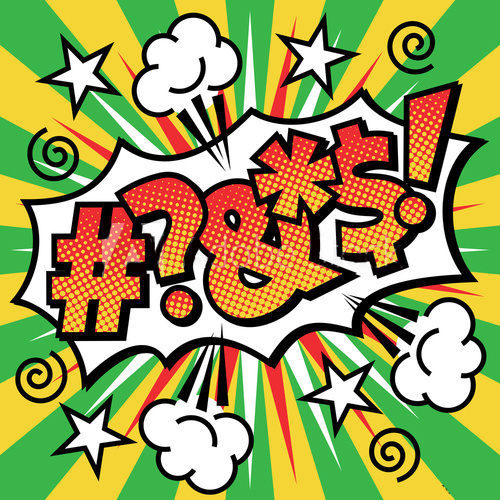Reconnection
2023-05-07
Beyond Quantum Healing
This is the first in what will hopefully be a more regular thread of articles woven together, on the topic... Read more »

Published Wednesday November 8, 2017 by support@quantumhealers.com
UncategorizedAfter a recent conversation I had with a fellow Quantum Healing practitioner, I felt the need to send a short text message expressing both gratitude and an apology for a particular word I used twice in our dialogue. The big “S” word…you know, the one that implies what one would find in a baby diaper. Granted, it’s not the worst word one could use in casual conversation. But it got me thinking about the words we use to express a thought, idea, feeling or even just words that have become part of our unconscious vocabulary. I wondered why I felt the need to apologize for saying a word that is so commonplace in our culture.
If you are familiar with the Tower of Babel story, you will recall that prior to its construction, there was one world language. Upon seeing what the people were doing, god came down and confounded their language, creating multiple languages. The word “babel” is still used today to describe someone who is not speaking clearly or making sense to our understanding.
But what about the “bad” words that we use? Where did the idea of “bad” words come from? Our current label for these words are grouped together under the term “profanity,” meaning socially offensive language. Wikipedia states: “In its older, more literal sense, “profanity” refers to a lack of respect for things that are held to be sacred, which implies anything inspiring deserving of reverence, as well as behavior showing similar disrespect or causing religious offense.” In terms of the etymology of the word “profane”, Wikipedia also states, “The term “profane” originates from classical Latin “profanus”, literally “before (outside) the temple.” It carried the meaning of either “desecrating what is holy” or “with a secular purpose” as early as the 1450s CE. Profanity represented secular indifference to religion or religious figures, while blasphemy was a more offensive attack on religion and religious figures, considered sinful, and a direct violation of The Ten Commandments.”
So does this mean that every single person who uses profanity is being disrespectful or causing religious offense? Probably not. In fact, I would suggest that the original meaning has been turned upside down. If you ask most people why they use profanity, the general answers range from using them as a form of expression, to place emphasis on a thought or idea or feeling, because the words are just part of everyday speech as common as the words “we” or “I.” There are, of course, the replies that people use them to literally curse another, perhaps due to a traffic incident or the general malaise by those in our every day circles.
To take this idea of choosing our words a bit further, consider that Quantum Physics has confirmed that everything that exists is made of energy, whether it appears solid or is in a potential phase of existence. If this is true, then our words and the intention behind them, whether conscious or unconscious, is also energy and have an impact. Those who attempt to live their lives by the Law of Attraction are probably the most cautious with their words, and even take it to the level of thought. But if we can train ourselves to be conscious of every utterance all the way to the level of thought, would our speech change? Would we naturally drop words from our vocabulary? George Orwell is quoted as saying, “If thought corrupts language, language can also corrupt thought.” To follow down that rabbit hole, from where do our thoughts come to begin with? Ahh…that age-old question…the chicken or the egg conundrum. Of course, coming from the Quantum perspective and the Universal Law of “As above, so below. As below, so above,” I would postulate that George Orwell may have been on to something with his statement above.
Essentially, I believe it really comes down to whether or not our intentions are to harm or not when it comes to what we say. At any rate, I’m not too keen on the idea of some record-keeper somewhere in the non-physical realms keeping a tally on how many times I use a word that society considers profane. If that is the case, I’m sure that all of us are in big “S…!”
To learn more about Catherine, please visit her Directory listing or https://www.catherinewyattqhht.com/
Comments are closed here.